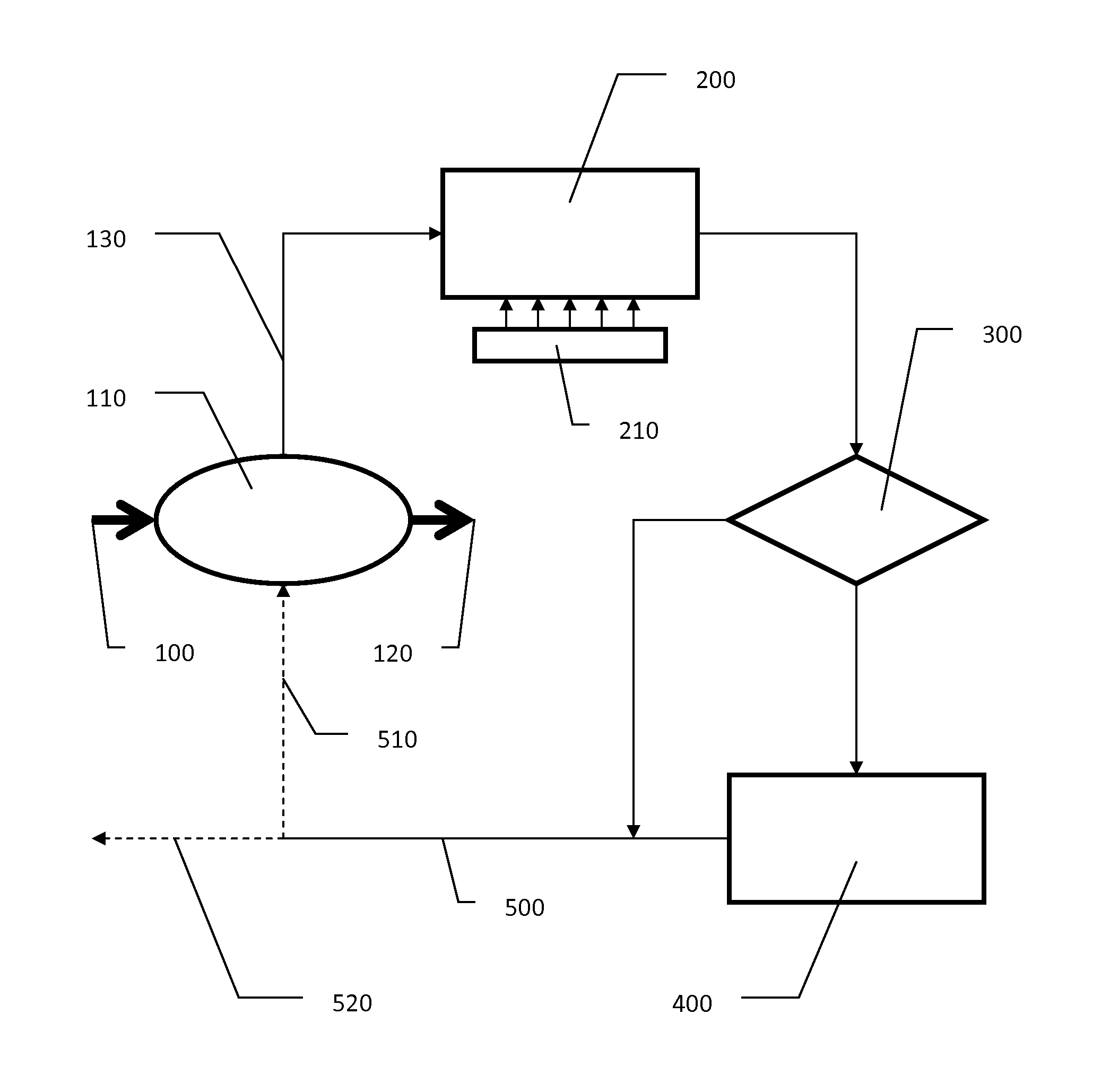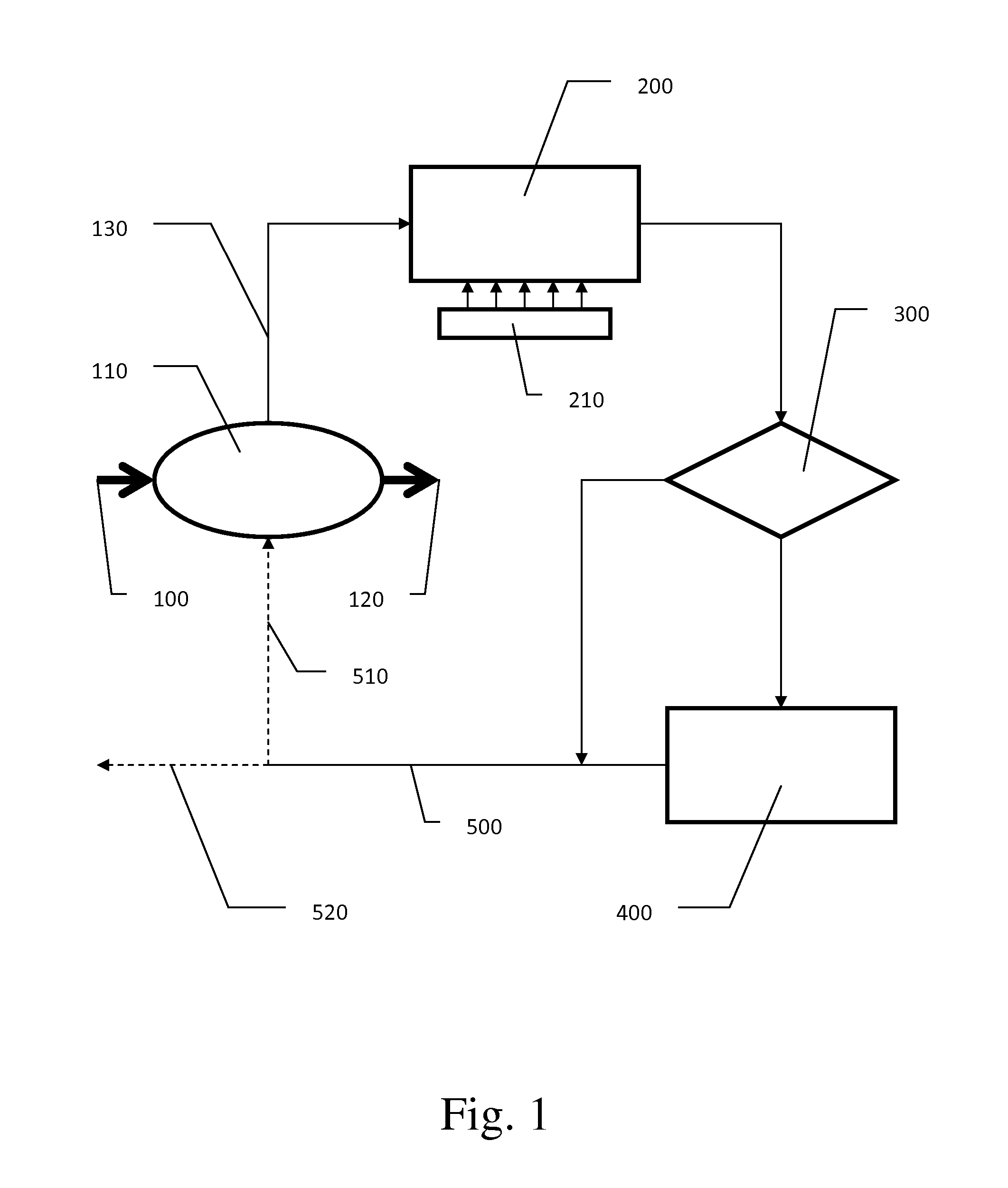Ethanol plant process
- Summary
- Abstract
- Description
- Claims
- Application Information
AI Technical Summary
Benefits of technology
Problems solved by technology
Method used
Image
Examples
Embodiment Construction
[0020]The embodiments discussed herein are merely illustrative of specific manners in which to make and use the invention and are not to be interpreted as limiting the scope of the instant invention.
[0021]Referring to the drawing in detail, FIG. 1 illustrates a schematic flowchart of the method as described herein. Ethanol vapor from the plant process 100 is directed into a condenser 110 (shell & tube, etc.) wherein the ethanol vapor is condensed into liquid ethanol (by exchanging heat with water) and directed out of the condenser for further plant processing 120. The heated water 130 leaves the condenser and is directed through an air cooled heat exchanger 200 wherein the heated water is cooled by exchanging heat with the air. In the preferred embodiment, the air cooled heat exchanger is placed as close to the condenser as is physically possible. Air circulation over the air cooled heat exchanger may be increased by the addition of a fan or fans 210.
[0022]After passing through the ...
PUM
| Property | Measurement | Unit |
|---|---|---|
| Temperature | aaaaa | aaaaa |
Abstract
Description
Claims
Application Information
 Login to View More
Login to View More - R&D
- Intellectual Property
- Life Sciences
- Materials
- Tech Scout
- Unparalleled Data Quality
- Higher Quality Content
- 60% Fewer Hallucinations
Browse by: Latest US Patents, China's latest patents, Technical Efficacy Thesaurus, Application Domain, Technology Topic, Popular Technical Reports.
© 2025 PatSnap. All rights reserved.Legal|Privacy policy|Modern Slavery Act Transparency Statement|Sitemap|About US| Contact US: help@patsnap.com


